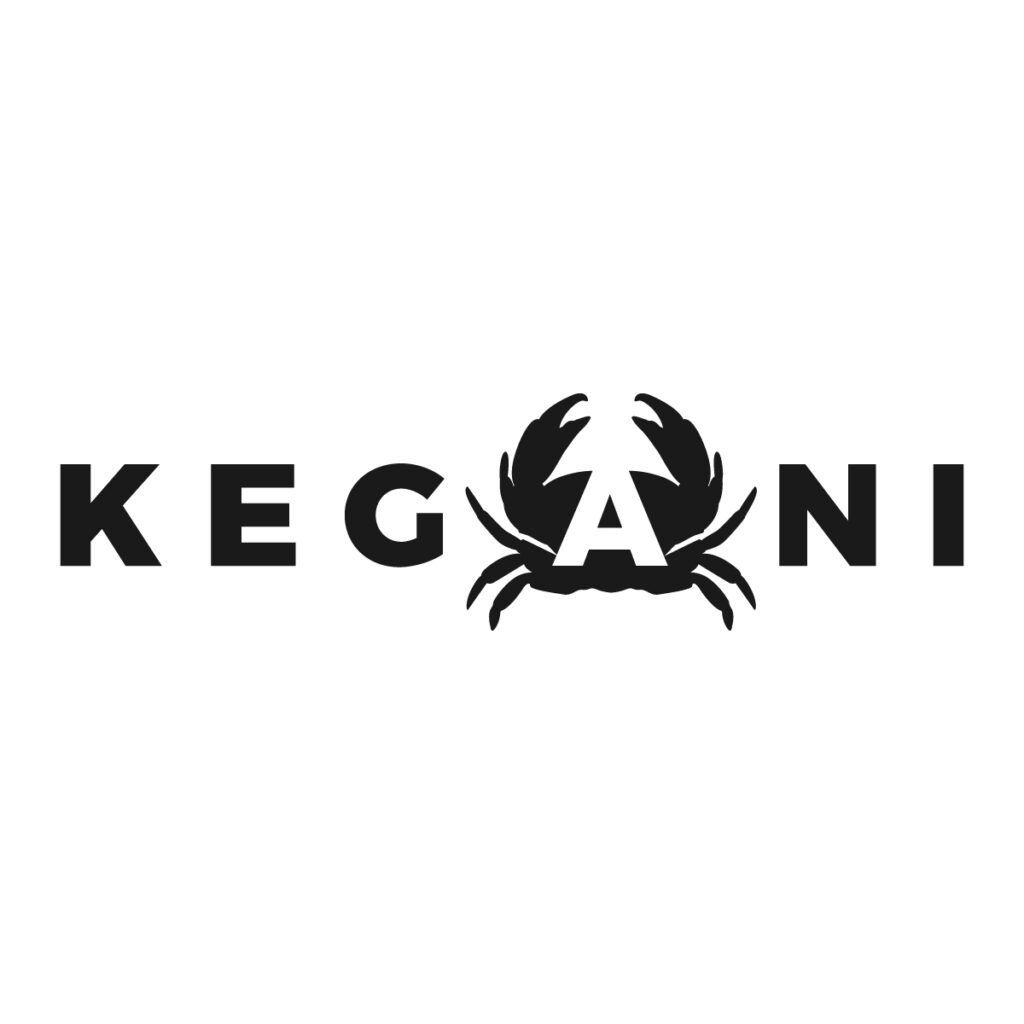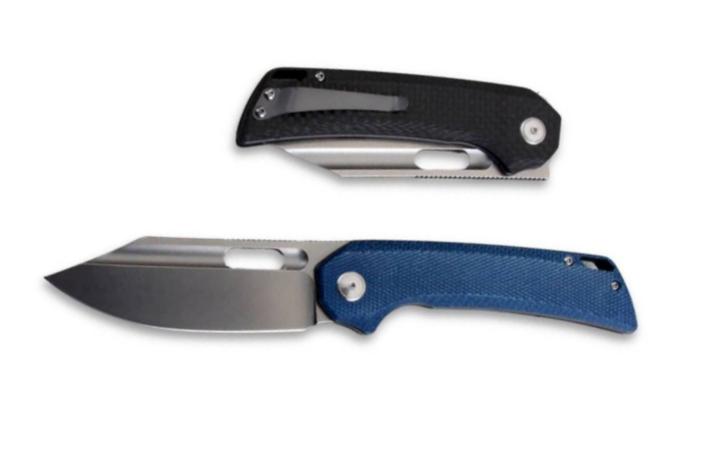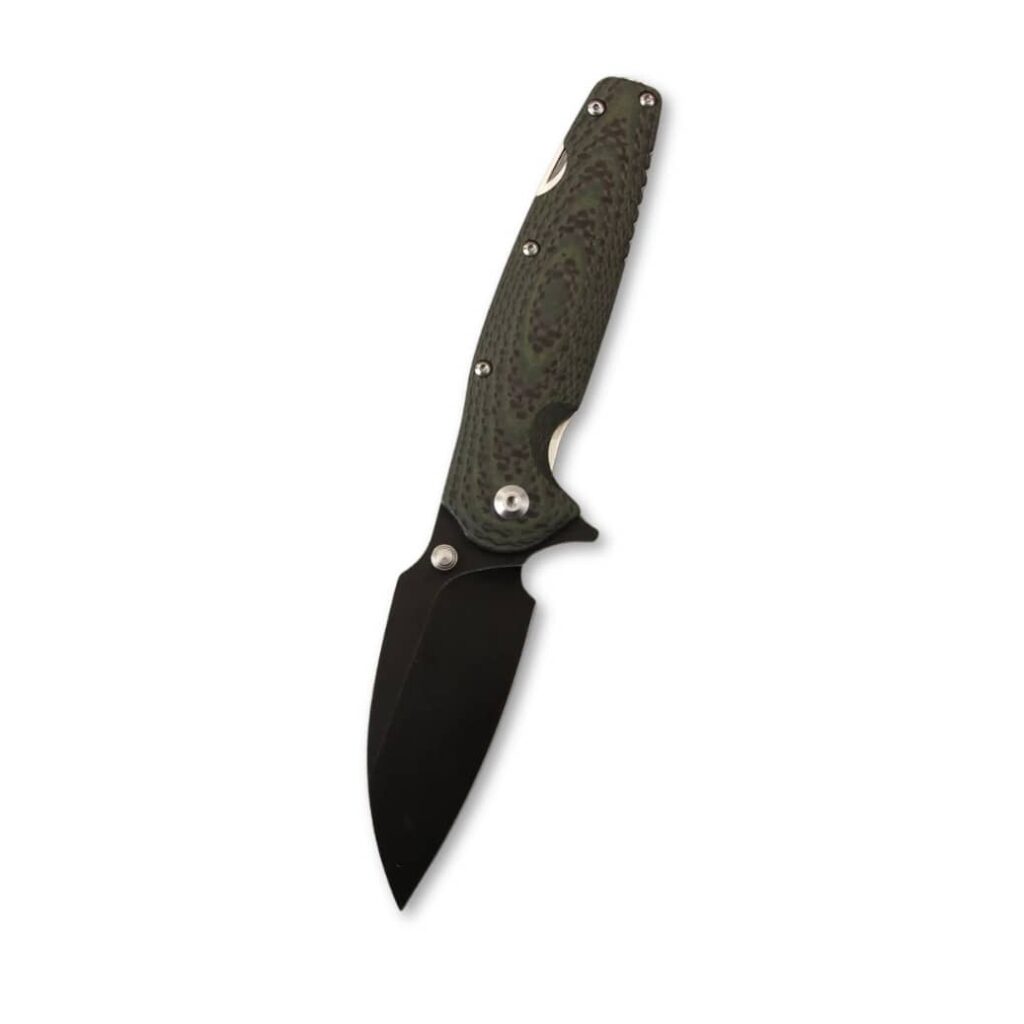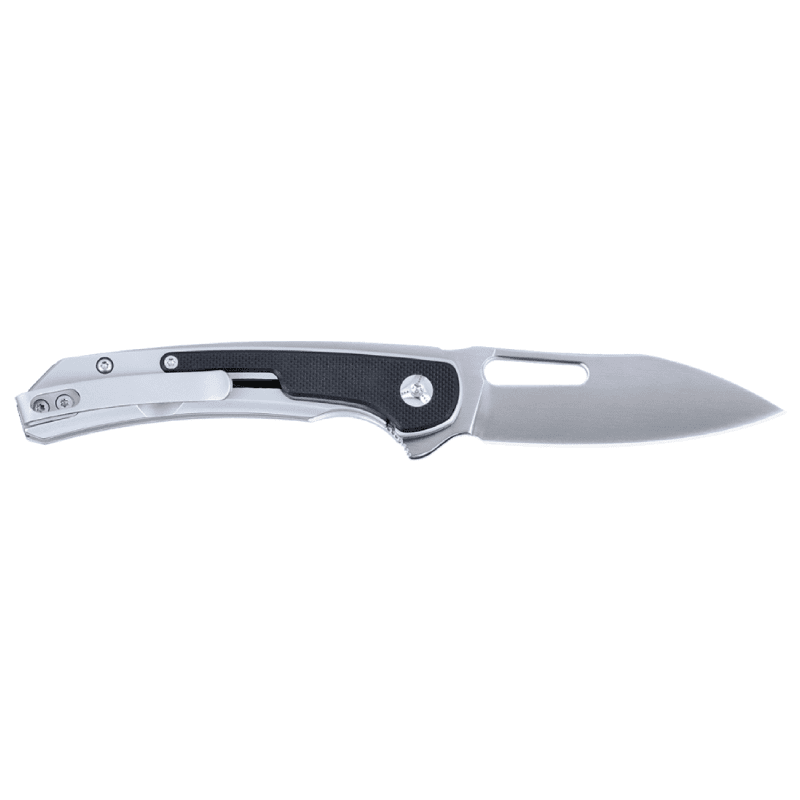14C28N steel is often mistaken for a “budget substitute,” but in reality, it outperforms many mid-to-high-end steels in several key parameters. This article will help you understand whether it’s worth choosing—especially if you want reliable performance without breaking the bank.
What is 14C28N Steel?
14C28N is a high-performance stainless steel developed by Swedish steel giant Sandvik (now Alleima) specifically for the knife industry. As an upgrade to the classic 12C27 steel, 14C28N achieves a significant performance leap through precise carbon adjustment (from 0.60% to 0.62%) and the addition of 0.11% nitrogen.
Originally co-designed with Kershaw Knives, it strikes a rare balance: high corrosion resistance, excellent toughness, fine grain structure, and ease of sharpening — all at a mid-range price point.
Why is 14C28N So Popular?
14C28N is typically hardened to about 58-61 HRC, suitable for mid-market positioning with “low risk, high reward” performance.
Many OEM knife manufacturers praise its “forgiving heat treatment,” making it suitable for mass production without quality concerns. This provides knife sellers with a reliable option to capture market share in the $30-100 price range in Western markets.
14C28N Steel Equivalents
14C28N has several near-equivalent steels in composition and performance:
- AEB-L: Very similar composition — both are fine-grained stainless steels prized for toughness and easy sharpening. AEB-L came first (razor heritage), while 14C28N is a refined version with added nitrogen for slightly better corrosion resistance. Nearly identical in practice, but 14C28N edges out AEB-L in modern performance.
- Nitro-V: Similar performance, but 14C28N has slightly higher toughness and better corrosion resistance. Nitro-V, promoted by New Jersey Steel Baron, is an independent variant based on similar nitrogen-alloying concepts.
Start Working with a Professional Now
Chemical Composition of 14C28N
| Element | % | Role |
|---|---|---|
| Carbon (C) | 0.62% | Base hardness contributor |
| Chromium (Cr) | 14.00% | Forms passive oxide layer; exceeds 13% stainless threshold |
| Nitrogen (N) | 0.11% | Core innovation: refines grains, boosts corrosion resistance, enables sharper edges |
| Manganese/Silicon | 0.6%/0.2% | Stabilizes smelting process |
| Phosphorus/Sulfur | Trace | Minimized to reduce brittleness |
14C28N doesn’t chase “ultra-high hardness” but instead “substitutes nitrogen for some carbon.” This 0.11% nitrogen not only refines the grain structure (making edges easier to sharpen) but also forms nitrides, further enhancing hardness and corrosion resistance. This sophisticated formula allows 14C28N to achieve better overall performance while maintaining excellent toughness.
Performance Analysis of 14C28N Steel
Performance Overview Table
| Property | Score (10) | Comparison | Real Impact |
|---|---|---|---|
| Toughness | 9.0 ★★★★★ | S30V: 4.0, D2: 3.5 | Allows 15°–17° edge angles without chipping |
| Edge Retention | 3.0 ★★☆☆☆ | S30V: 6.0, D2: 5.0 | Good for daily tasks; easy to refresh |
| Corrosion Resistance | 8.5 ★★★★★ | S30V: 7.5, D2: 4.5 | Near-zero maintenance in humid/salty environments |
| Ease of Sharpening | Excellent | Far easier than S30V/D2 | 5–10 mins with basic stones = razor sharp |
| Hardness | 58–61 HRC | Achievable with cryo treatment | Balances wear resistance and toughness |
Toughness
14C28N’s most surprising feature is its 9.0 toughness score. Its toughness is 2.25 times that of S30V, even matching the toughness-renowned 3V steel. In practical applications, this exceptional toughness brings revolutionary advantages.
Manufacturers can confidently use sharp 15-17 degree edge angles without worrying about chipping. In contrast, S30V typically requires 20 degrees or more for strength. Thinner edges combined with excellent toughness allow 14C28N to demonstrate amazing cutting performance.
Corrosion Resistance
The 8.5 corrosion resistance score makes 14C28N truly “stainless.” The 14% chromium content provides ample protection, with nitrogen addition as the cherry on top.
Compared to D2 steel’s 4.5 score, 14C28N’s advantage is obvious. Many users switching from D2 to 14C28N mention the same thing: finally free from rust worries.
Edge Retention
The 3.0 edge retention score isn’t outstanding, but needs contextual understanding. In standardized CATRA testing (measuring total mm of material cut), 14C28N performs at approximately 60% of S30V’s level, comparable to 8Cr13MoV. This translates to adequate performance for daily tasks with regular maintenance.
Interestingly, many users report 14C28N feels “always sharp.” The reason lies in its extreme ease of sharpening—when the edge begins dulling, 5 minutes can restore it sharper than new. A professional chef commented: “I’d rather spend 5 minutes weekly maintaining 14C28N than wrestle with S30V for half an hour monthly.”
Ease of Sharpening
14C28N’s fine grain structure makes it one of the easiest quality steels to sharpen. Using standard 1000/3000 grit whetstones, even beginners can achieve razor sharpness in 10 minutes. In contrast, S30V typically requires diamond stones and 20-30 minutes of patience.
This ease of sharpening not only saves time but more importantly lowers the maintenance barrier. Many users develop regular maintenance habits as a result, keeping their knives in optimal condition.
Hardness Range
14C28N performs stably across a wide HRC range (55-62). While many manufacturers botch D2 heat treatment, 14C28N is hard to mess up. With proper heat treatment, it can reach 58-61 HRC, providing the best balance of cutting performance and toughness.
14C28N vs Other Popular Knife Steels
14C28N vs Nitro-V
| Feature | 14C28N | Nitro-V | Practical Impact |
|---|---|---|---|
| Toughness Score | 9.0 | 7.5 | 14C28N – More durable |
| Edge Retention | 3.0 | 3.0 | Tie |
| Corrosion Resistance | 8.5 | 7.0 | 14C28N – Better rust resistance |
| Market Maturity | Established | Emerging | 14C28N – More mature supply chain |
| Price Range | $30-80 | $50-80 | 14C28N – Slight advantage |
Both steels are recent favorites. Nitro-V is more common in American brands, while 14C28N is prevalent in European/Asian manufacturers. Data shows 14C28N has slight advantages across the board, with key benefits in more mature supply chain and heat treatment processes.
🔍 Deep Dive: Nitro-V vs 14C28N: Which One Wins for Sellers?
14C28N vs S30V
| Feature | 14C28N | S30V | Winner & Why |
|---|---|---|---|
| Toughness Score | 9.0 | 4.0 | 14C28N – Chip-resistant, allows thinner edges |
| Edge Retention | 3.0 | 6.0 | S30V – Cuts about 2x longer |
| Corrosion Resistance | 8.5 | 7.5 | 14C28N – Superior rust resistance |
| Sharpening Difficulty | Easy | Hard | 14C28N – Saves 80% sharpening time |
| Price Range | $30-80 | $80-150 | 14C28N – Value champion |
While S30V’s edge retention data is better, 14C28N’s real-world experience surprises many. Due to sharper possible edge angles, 14C28N often shows better cutting performance. A knife collector summarized: “S30V stays sharp longer, but 14C28N is always sharper.”
Recommendation: Choose 14C28N for daily EDC/kitchen use; S30V for professional cutting tasks.
Start Working with a Professional Now
14C28N vs D2
| Feature | 14C28N | D2 | Winner & Why |
|---|---|---|---|
| Toughness Score | 9.0 | 3.5 | 14C28N – 2.5x tougher than D2 |
| Edge Retention | 3.0 | 5.0 | D2 – Slight edge |
| Corrosion Resistance | 8.5 | 4.5 | 14C28N – Far superior |
| Maintenance Need | Minimal | High | 14C28N – Nearly maintenance-free |
| Ease of Sharpening | Very Easy | Difficult | 14C28N – Huge time saver |
Many D2 users switch to 14C28N primarily due to maintenance burden. A Florida user shared: “In humid environments, D2 is a nightmare. Even with frequent oiling, rust appears. After switching to 14C28N, I almost forgot what rust looks like.”
Recommendation: Choose 14C28N for humid environments; D2 for heavy industrial/chopping tasks.
🔍 Full Analysis: 14C28N vs D2: The Ultimate Knife Steel Comparison
14C28N vs 8Cr13MoV
| Feature | 14C28N | 8Cr13MoV | Upgrade Value |
|---|---|---|---|
| Toughness Score | 9.0 | 6.0 | 14C28N – 50% improvement |
| Edge Retention | 3.0 | 3.0 | Tie |
| Corrosion Resistance | 8.5 | 7.0 | 14C28N – Better |
| Heat Treatment Consistency | Excellent | Variable | 14C28N – More stable quality |
| Price Difference | +$20-30 | Baseline | Worth the upgrade |
For users looking to upgrade, 14C28N offers significantly better toughness and quality consistency with reasonable price increase.
14C28N vs 154CM
| Feature | 14C28N | 154CM | Key Advantage |
|---|---|---|---|
| Toughness Score | 9.0 | 3.5 | 14C28N – Massive toughness advantage |
| Edge Retention | 3.0 | 4.5 | 154CM – Slightly better |
| Corrosion Resistance | 8.5 | 7.0 | 14C28N – More rust resistant |
| Sharpening Ease | Excellent | Moderate | 14C28N – Easier maintenance |
| Price Point | $ | $$ | 14C28N – More economical |
14C28N’s toughness advantage allows more aggressive edge geometry, often matching 154CM’s actual cutting performance.
Best uses & limitations
1. Fixed blade outdoor knives
14C28N is excellent for 4-6 inch outdoor fixed blades. While edge retention isn’t as good as some tool steels, excellent toughness and rust resistance make it a reliable companion in wet environments. Many bushcraft enthusiasts find 14C28N’s easy sharpening a huge advantage in the field. Perfect for skinning and slicing, resisting blood and moisture. Good for carving and light chopping; high toughness prevents impact fractures.
2. EDC folding knives
14C28N is perfect for EDC folders. The 9.0 toughness score means even thin blade designs can handle daily challenges. From opening packages to cutting rope, from lunch prep to emergencies, 14C28N excels. Its corrosion resistance handles sweat and rain without issue.
Why 14C28N excels in folding knives:
- Superior edge geometry: Manufacturers can confidently use 15-17 degree edges, while S30V folders typically need 20+ degrees
- Thinner blade designs: High toughness allows slimmer designs for better carry comfort
- High fault tolerance: Resists damage even with occasional misuse (light prying)
- Long-term reliability: Withstands daily opening/closing and use
3. High-end kitchen knives
More kitchen knife manufacturers are choosing 14C28N, especially for Western-style knives. It provides sufficient hardness (58-60 HRC) to stay sharp while avoiding the brittleness of some Japanese steels. Rust resistance is a bonus in kitchen environments.
4. Fishing and marine knives
The 8.5 corrosion resistance score makes 14C28N ideal for marine environments. Whether processing catches or cutting lines, salt water corrosion isn’t a concern.
5. Limitations
- Heavy Chopping Tasks: For large choppers requiring extreme impact strength, spring steels like 5160 remain better choices
- Maximum Edge Retention Needs: If applications require extremely long edge retention, super steels like M390 or S90V are more suitable
- Extreme Budget Constraints: If budget is extremely limited, 8Cr13MoV remains a reliable entry option
Partner with Keganico for Your 14C28N Knife Line
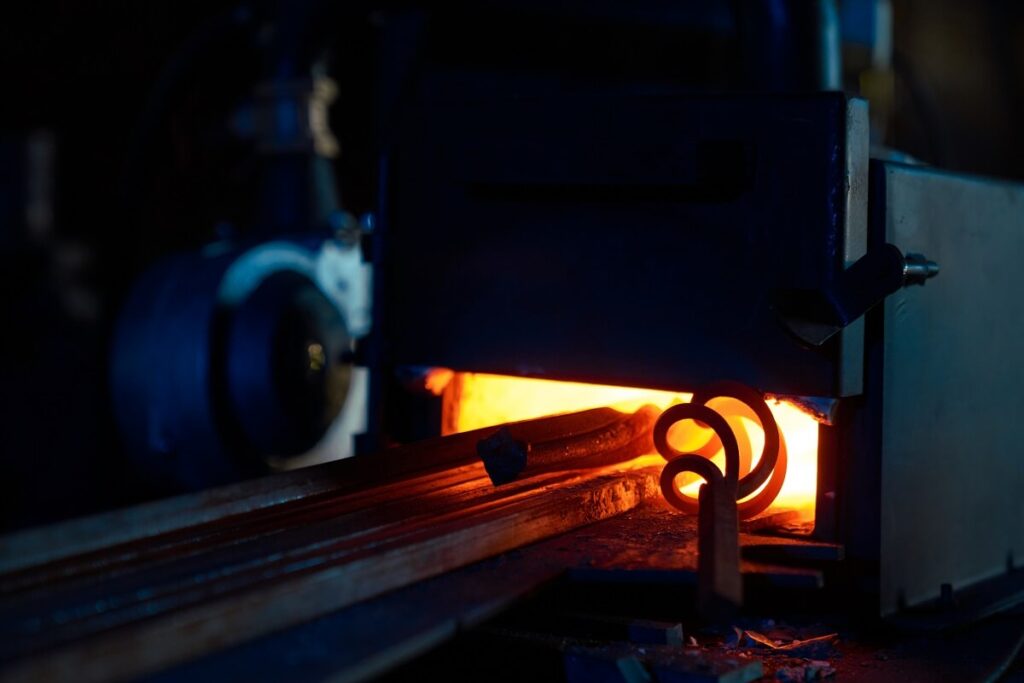
Looking to capitalize on 14C28N’s exceptional performance? Keganico specializes in crafting high-quality 14C28N knives that maximize this steel’s potential.
Our expertise includes:
- Precision heat treatment achieving optimal 58-61 HRC
- Advanced edge geometry design leveraging 14C28N’s toughness
- Consistent quality control ensuring every knife performs as expected
- Competitive pricing for both small batches and large orders
Whether you need EDC folders, outdoor fixed blades, or kitchen knives, we deliver the perfect balance of performance and value.
We also offer multiple services to suit your business needs:
- Private Label Knives – Put your brand on our expertly crafted blades
- OEM Manufacturing – Custom designs brought to life
- Wholesale Options – Stock quality knives at competitive prices
Get Your Quote Now and discover why leading brands trust Keganico for their 14C28N production needs.
